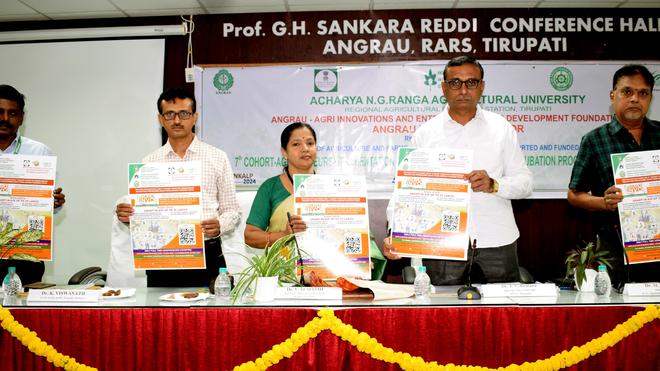In a recent address, the Vice-Chancellor of Sri Venkateswara Veterinary University (SVVU) emphasized the critical role of agricultural entrepreneurship in driving development in India’s rural areas. According to the Vice-Chancellor, promoting agri-entrepreneurship can be a transformative step toward addressing various socioeconomic challenges faced by rural communities, particularly in states like Andhra Pradesh. By enabling economic growth, reducing unemployment, and improving living standards, agri-entrepreneurship can help bridge the gap between rural and urban development.
Rural areas in India, which are largely dependent on agriculture, face numerous hurdles such as limited access to markets, lack of infrastructure, and high unemployment rates. Agri-entrepreneurship, or agricultural entrepreneurship, focuses on creating innovative, profitable business models in agriculture and related sectors. This approach not only empowers farmers but also brings new opportunities for younger generations to engage in rural development.
The Vice-Chancellor highlighted that agri-entrepreneurship provides a pathway to utilize local resources more effectively, creating a ripple effect that stimulates growth. Through innovative practices, such as sustainable farming methods, value-added products, and efficient supply chain management, agri-entrepreneurs can increase agricultural productivity and ensure better incomes for farmers. By adopting these practices, rural communities can become more self-reliant, reducing their dependence on government subsidies and external aid.
One key aspect of agri-entrepreneurship is training and education, which SVVU has prioritized. The university is committed to equipping students and farmers with the skills needed to thrive in the agriculture sector. The Vice-Chancellor stressed that knowledge transfer in areas like animal husbandry, crop management, and farm technology is essential for creating a new generation of agri-entrepreneurs. By fostering innovation, SVVU aims to encourage more young people to take up agriculture not just as a livelihood but as a profitable career path.
Furthermore, the Vice-Chancellor noted that agri-entrepreneurship has the potential to attract investment in rural areas. When local enterprises flourish, they draw interest from investors and governmental agencies eager to support sustainable development initiatives. This inflow of funds can further enhance infrastructure, improve market access, and provide the capital needed for rural businesses to expand. In Andhra Pradesh, where agriculture is a key economic driver, such investment could significantly boost the state’s economy.
The Vice-Chancellor also pointed out the environmental benefits of agri-entrepreneurship. Many agricultural entrepreneurs focus on sustainable practices, such as organic farming, water conservation, and waste reduction, which align with global sustainability goals. By adopting eco-friendly methods, rural areas not only enhance productivity but also contribute to environmental conservation. Sustainable agri-business models can ensure that resources are preserved for future generations, making rural development sustainable in the long term.
In conclusion, agri-entrepreneurship stands as a viable solution to the development challenges in rural India. By promoting entrepreneurship in agriculture, rural areas can become hubs of economic activity and innovation. The Vice-Chancellor’s remarks underscore the importance of supporting agri-entrepreneurs through education, investment, and infrastructure to empower rural communities. As SVVU and other institutions continue to champion agri-entrepreneurship, there is potential for rural India to achieve balanced development, bridging the gap between urban and rural livelihoods.
Read More






 Monday, 09-02-26
Monday, 09-02-26







